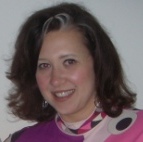Lisa Stowe, my guest today, may
not be a familiar name to you, but she has a long writing and editing history.
I’ve known her since Death By A Dark Horse was named something else, and was in
its initial, very rough, form.
At the time, she headed up a
writers’ group at our local library. What impressed me was her quiet attention
to each budding writer and her ability to discern just what each piece of work
needed – then deliver the information in a manner that both challenged and
encouraged the author rather than dispirit.
Knowing I’d found the help I
needed, I handed over my rough draft of DBADH. When she was done reading it,
her suggestion was to start the story a little farther into my manuscript. I swallowed
hard, and pondered her advice for three days because, as all writers know,
cutting out your darlings is painful. At last, because I trusted her, the first
seventy-five pages were severed, and … I knew I’d done the right thing. Since
then, she has taught me much and encouraged my growth as a writer, for which I
am very grateful.
I think you’ll understand,
when you read her contribution to my blog, why I feel she is well qualified to coax
a story from a writer. She has a gentle warmth and humor that make her wise
words difficult to forget.
<><><><><><><>
 Someone
once told me that my guardian spirit was an owl. She then said she’d never seen
so many around one person, that they perched along my roof line and in the
trees. I thought that was a cool image, although I didn’t know if I should be
thrilled or terrified. Another friend researched owls as guardian spirits and
told me they were the keepers of stories.
Someone
once told me that my guardian spirit was an owl. She then said she’d never seen
so many around one person, that they perched along my roof line and in the
trees. I thought that was a cool image, although I didn’t know if I should be
thrilled or terrified. Another friend researched owls as guardian spirits and
told me they were the keepers of stories.
So where
do stories come from? Those guardian spirits that hold them safe.
The
reality is something different though. Rather than coming from an owl, I find
myself listening in on conversations. I recently heard a woman talking about
remodeling. It was, to be honest, a boring story. I started thinking it would
be way more fun if this happened, and then if that started up, and then this
person could jump in, and then what if…
And
instantly I’ve daydreamed my way into something entertaining, while smiling and
nodding to a story about plumbing problems.

Sometimes
it’s a question that intrigues me. The
Memory Keeper started because my father thought a bordello madam was his
biological mother. He died before finding out and I knew the question would
haunt me forever if I couldn’t answer it. So I did, in a story. What if she was his mother? What if a young woman
looked for her grandfather’s history, looked for that madam, and old buried
secrets came out in the open? What would those secrets be, and who would care?
For me,
when I ask that question, the answer I receive isn’t a complete book, or even a
full story. Usually I see the very last scene. I always know what the last line
of the story is, and the writing process is figuring out how to get to that
point. The questions get me wandering down a foggy path toward a clear ending.
‘What
if…’ is a magical question. I ask it when eavesdropping on life.
<><><><><><><>
To read more about Lisa and gain writing insight, visit her blog The Story River. If you need an editor, she
is Outlaw Creek Editing. To spend some quality time with beautifully written,
absorbing mysteries pick up The Memory Keeper and then Sparrow’s Silence at any
retailer. They’re in print and e-book format. Here’s some links to make it easy
for you:
Barnes & Noble: All books in print and e-format
Smashwords: All E-Books
All other retailers -- search Lisa Stowe or the book title.








